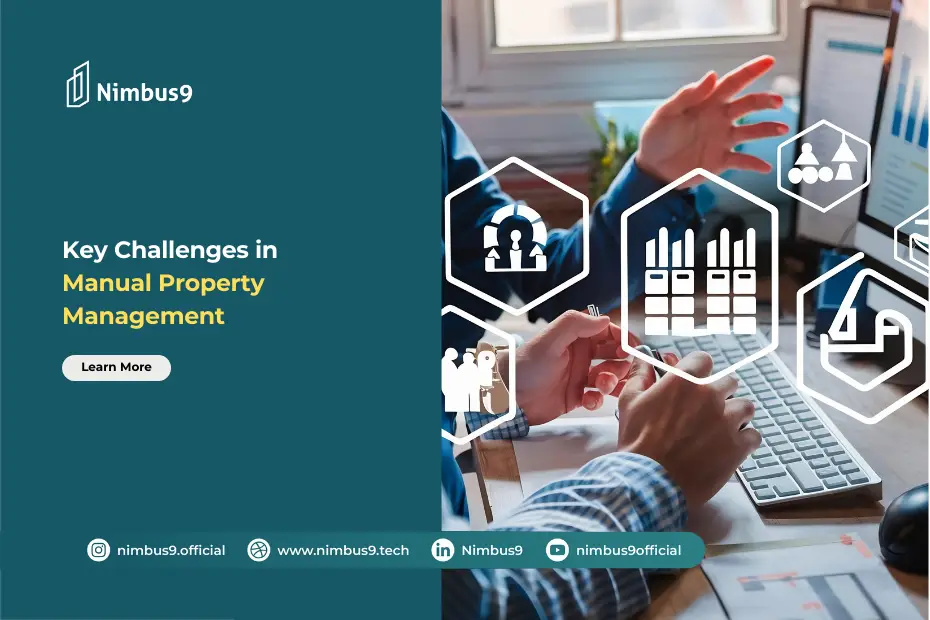Many companies still rely on manual property management processes to run daily operations. While this method may feel familiar and simple, it is often time-consuming, error-prone and inefficient.
As business competition grows tighter, not only will manual processes slow down workflows but they create new problems that reduce productivity and impact tenant satisfaction.
In this article, we will explore the common challenges of manual property management and will show how switching to a digital property management system can improve efficiency, reduce errors, and increase business growth.
Common Challenges in Manual Property Management
-
Paper-Based Checklists

Many property managers make use of paper forms or physical sheets to record inspections, facility maintenance, and security checks.
While simple, this method is full of limitations:
• Paper documents are easily misplaced, damaged, or scattered• Retrieving old records can take time
• Financial reporting is slow and more prone to human error
The result? Inefficient workflows and inconsistent reporting.
-
Slow Complaint Reporting & Handling

In a manual system, tenants often have to visit the office directly to submit complaints about facilities, cleanliness, or billing.This process feels personal but creates problems:
• Complaints delivered verbally may be forgotten or poorly documented
or not forwarded to the appropriate department• The more tenants you have, the harder it is to track issues.
• Delays in follow-up can reduce tenant satisfaction and harm your reputation
-
Manual Invoicing and Payments

Traditional billing still relies on paper invoices or printed documents sent to tenants one by one. Payments are made in cash or bank transfer, with proof submitted manually.The downsides include:
• Delayed invoice delivery• Errors in billing amounts
• Lost payment receipts
• Time-consuming manual validation of transactions
This slows down operations and increases the risk of administrative mistakes
-
No Real-Time Monitoring

With manual operations, management can only review reports after they are submitted by staff- not when incidents actually happen.This leads to:
• Delayed responses to facility damage or tenant complaints• Inaccurate or late data
• Poor decision-making due to lack of real-time insights
-
Overdependence on Employees

In manual symptoms, important tasks such as transaction recording and tenant complaint handling are often handled by only a few experienced staff.If they take leave, fall ill, or resign, the flow of operations are disrupted.
New staff also struggle to adapt because there is no structured, documented system to guide them.
Why Digital Property Manage Systems like Nimbus9 Are the Solution
Conventional methods may still work for small portfolios, but as your business grows, manual processes quickly become inefficient.
That’s why many property managers are now switching to digital property management systems like Nimbus9—a modern, integrated solution designed to streamline operations.
Key Benefits of a Digital PMS:
- All-in-one system for administration, billing, maintenance, and tenant communication.
- Real-time monitoring of financial and operational activities.
- Automated invoicing and reminders to reduce late payments.
- Integrated reports that improve decision-making accuracy.
- Tenant apps that increase transparency and satisfaction.
Final Thoughts: Time to Go Digital
Manual property management might feel comfortable, but it comes with risks: slow processes, high dependency on staff, and limited accuracy.
By switching to a Property Management System (PMS) like Nimbus9, you can:
- Automate repetitive tasks.
- Reduce errors.
- Improve tenant experience.
- Make faster, data-driven decisions.
It’s time to move beyond paperwork and inefficiency. Switch to Nimbus9 today and manage your property business smarter, easier, and more efficiently.
Learn more about the Nimbus9 tenant application [here].

